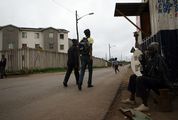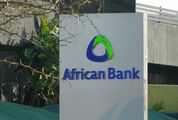Investors wary of African deals amid currency mayhem
by Colin Mcclelland
2016-06-24 06:39:24.0
VOLATILE currencies and weaker commodity prices are keeping private equity investors focused on sub-Saharan Africa on the sidelines, even though buy-out companies have record amounts of cash to spend on acquisitions.
Marlon Chigwende, manager of the Carlyle Group’s $698m African fund, said: "The dollar has appreciated strongly against a lot of African currencies, so it’s had the effect of slowing down deal activity."
Private equity companies amassed $4.3bn for investment opportunities on the continent in 2015, the most since at least 2010, when the London-based African Private Equity and Venture Capital Association began compiling the data. Currency declines since then means buyers are taking a wait-and-see approach, from SA to Nigeria, to avoid writing down assets should currencies devalue further.
The number of announced private equity deals in the sub-Saharan region has dropped to 29 this quarter, with transactions worth $760m, compared with 37 transactions worth $6.1bn in the second quarter of 2015, which marked the highest deal value on record, data compiled by Bloomberg shows.
Investor sentiment towards Africa has soured, as a commodity-price rout and a drought slowed economic expansion.
In Nigeria, acquisitions in Africa’s largest oil producer have been hampered by crude prices that have slumped more than 50% in the past two years.
Nigeria’s central bank buckled to pressure last week and agreed to allow the naira to float freely, causing the currency to weaken as much as 30% to 284.50 per dollar on Monday, when trading opened.
But Paul Boynton, head of alternative investments at Old Mutual, sees opportunity in countries such as Rwanda and Kenya, that have gained from low oil prices.
A parallel currency market in Angola and currency rules in Ethiopia that make it difficult to pull out profit in dollars push these countries down the list of investment destinations, Natalie Kolbe, an investment principal at London-based Actis, said.
They are not the only ones struggling. The rand has dropped 17% against the dollar in the past year as the country faces the risk of a credit downgrade to junk by the end of 2016.
"Trying to call when to bring your dollars in is quite difficult in a very volatile environment, like we are in SA," Kolbe said.
Bloomberg

Picture: THINKSTOCK
VOLATILE currencies and weaker commodity prices are keeping private equity investors focused on sub-Saharan Africa on the sidelines, even though buy-out companies have record amounts of cash to spend on acquisitions.
Marlon Chigwende, manager of the Carlyle Group’s $698m African fund, said: "The dollar has appreciated strongly against a lot of African currencies, so it’s had the effect of slowing down deal activity."
Private equity companies amassed $4.3bn for investment opportunities on the continent in 2015, the most since at least 2010, when the London-based African Private Equity and Venture Capital Association began compiling the data. Currency declines since then means buyers are taking a wait-and-see approach, from SA to Nigeria, to avoid writing down assets should currencies devalue further.
The number of announced private equity deals in the sub-Saharan region has dropped to 29 this quarter, with transactions worth $760m, compared with 37 transactions worth $6.1bn in the second quarter of 2015, which marked the highest deal value on record, data compiled by Bloomberg shows.
Investor sentiment towards Africa has soured, as a commodity-price rout and a drought slowed economic expansion.
In Nigeria, acquisitions in Africa’s largest oil producer have been hampered by crude prices that have slumped more than 50% in the past two years.
Nigeria’s central bank buckled to pressure last week and agreed to allow the naira to float freely, causing the currency to weaken as much as 30% to 284.50 per dollar on Monday, when trading opened.
But Paul Boynton, head of alternative investments at Old Mutual, sees opportunity in countries such as Rwanda and Kenya, that have gained from low oil prices.
A parallel currency market in Angola and currency rules in Ethiopia that make it difficult to pull out profit in dollars push these countries down the list of investment destinations, Natalie Kolbe, an investment principal at London-based Actis, said.
They are not the only ones struggling. The rand has dropped 17% against the dollar in the past year as the country faces the risk of a credit downgrade to junk by the end of 2016.
"Trying to call when to bring your dollars in is quite difficult in a very volatile environment, like we are in SA," Kolbe said.
Bloomberg



















